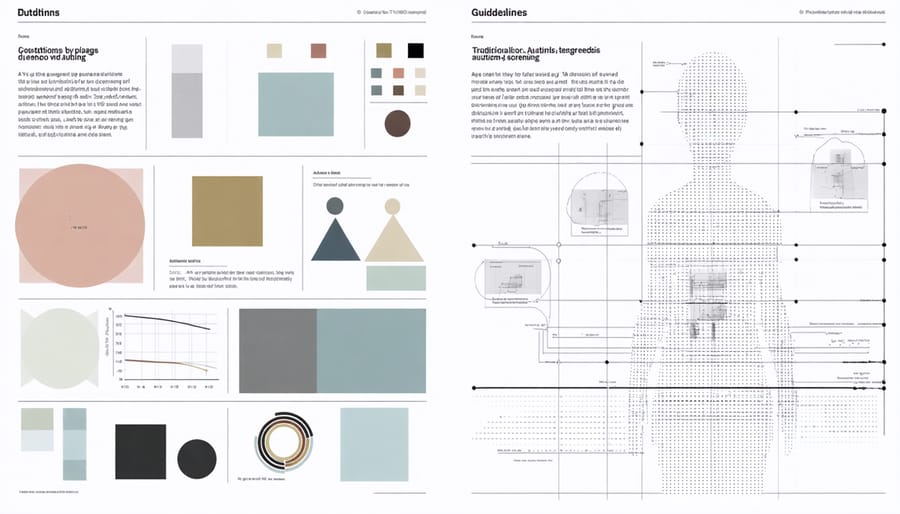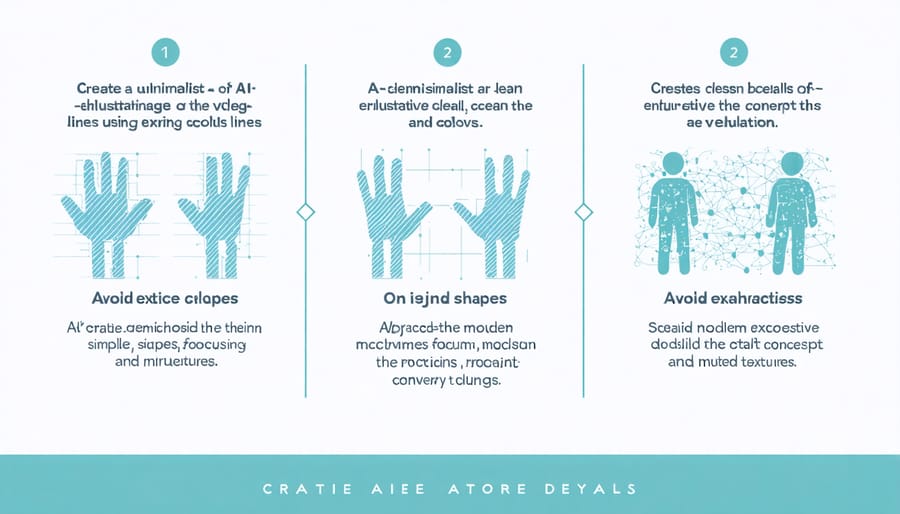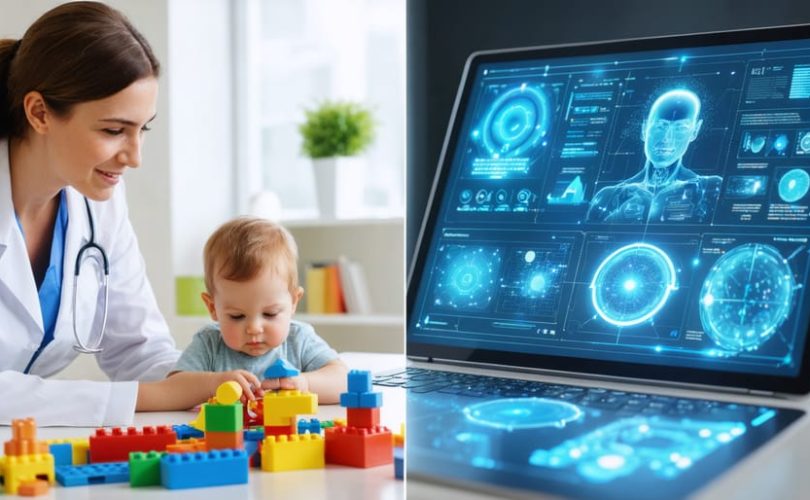When a child shows signs of autism, finding the right pediatric psychiatrist becomes a crucial step in securing effective early intervention and support. Modern diagnostic approaches have revolutionized how specialists identify and treat autism spectrum disorder (ASD), combining traditional clinical expertise with innovative assessment tools to provide more accurate, timely diagnoses for children.
Today’s pediatric psychiatrists specializing in autism bring together developmental psychology, neuroscience, and behavioral analysis to create comprehensive treatment plans tailored to each child’s unique needs. These experts work closely with families to understand not just the clinical presentation of autism, but also how it affects daily life at home, school, and in social situations.
The journey to diagnosis often begins with careful observation of a child’s communication patterns, social interactions, and behavioral tendencies. Pediatric psychiatrists use standardized screening tools while also considering the vital insights parents provide about their child’s development. This collaborative approach ensures that families receive both professional guidance and practical strategies to support their child’s growth and potential.
For parents seeking answers, working with a pediatric psychiatrist offers more than just a diagnosis – it opens doors to early intervention programs, therapeutic services, and a supportive network of professionals dedicated to helping children with autism thrive in their daily lives.
How AI is Revolutionizing Autism Diagnostics
Early Detection Tools
Modern technology has revolutionized how we approach autism detection, making it easier for pediatric psychiatrists to identify signs earlier than ever before. These innovative early screening assessments now incorporate artificial intelligence to help catch subtle developmental differences that might otherwise go unnoticed.
Many of these tools use smart cameras and tablets to track a child’s eye movements, facial expressions, and responses to various stimuli. For example, Dr. Sarah Chen, a leading pediatric psychiatrist, shares how these tools helped her identify autism in 2-year-old Tommy months before traditional methods might have caught it: “The AI-assisted screening picked up on patterns in his eye contact and social engagement that weren’t obvious during regular observations.”
These screening tools don’t replace human expertise but rather enhance it. They provide objective data that helps psychiatrists make more informed decisions while keeping the assessment process engaging and comfortable for children. Some popular tools include tablet-based games that measure social attention and apps that analyze speech patterns.
Parents often find these tech-forward approaches less stressful for their children compared to traditional evaluations. The natural, play-based nature of these tools means kids often don’t even realize they’re being assessed, leading to more accurate results and earlier intervention opportunities when needed.

Machine Learning in Behavioral Analysis
Modern technology is revolutionizing how pediatric psychiatrists understand and support children with autism. Machine learning tools are now helping professionals analyze countless behavioral patterns and interactions that might be difficult to track through traditional observation alone.
These smart systems can process videos of children during play sessions, therapy appointments, and daily activities, identifying subtle patterns in movement, facial expressions, and social interactions. For example, AI algorithms can detect early signs of communication challenges or repetitive behaviors that might indicate autism spectrum disorder.
Dr. Sarah Chen, a leading pediatric psychiatrist, explains, “Machine learning helps us create a more complete picture of a child’s development. We can track progress over time and adjust therapy approaches based on concrete data, not just periodic observations.”
The technology is particularly helpful in monitoring response to treatment. It can track improvements in social engagement, changes in communication patterns, and even subtle shifts in emotional regulation. This detailed analysis helps healthcare providers make more informed decisions about treatment plans and adjustments.
Parents often find the data particularly reassuring. “Having objective measurements of my son’s progress helps me understand how he’s developing,” shares Maria Rodriguez, mother of a 6-year-old with autism. “It’s like having a detailed roadmap of his journey.”
These tools complement, rather than replace, the human expertise of pediatric psychiatrists, creating a more comprehensive approach to autism care and support.
The Human Touch: Pediatric Psychiatrists and AI Collaboration

Combining Clinical Expertise with AI Insights
Modern pediatric psychiatry is witnessing a remarkable transformation through the integration of artificial intelligence while maintaining the irreplaceable human touch that children with autism need. Dr. Sarah Chen, a leading pediatric psychiatrist, explains, “AI tools don’t replace our expertise; they enhance our ability to make more informed decisions and provide better care for our young patients.”
These technological advances are particularly valuable during child mental health screenings, where AI algorithms can detect subtle behavioral patterns that might be challenging to observe in brief clinical visits. For instance, machine learning systems can analyze videos of children’s interactions, identifying early signs of autism that complement the psychiatrist’s professional assessment.
The real magic happens when clinical expertise meets AI insights. While AI can process vast amounts of data and identify patterns, pediatric psychiatrists bring crucial elements that technology cannot replicate: empathy, cultural understanding, and the ability to build trust with both children and their families. They interpret AI-generated insights within the context of each child’s unique circumstances, family dynamics, and environmental factors.
“What makes this combination so powerful is that it allows us to be more precise in our diagnoses while maintaining the personal connection that’s essential for effective treatment,” shares Dr. Chen. “Parents often tell me they appreciate how technology helps us track their child’s progress more accurately, while still feeling that their child is receiving individualized care.”
This partnership between human expertise and AI is creating more comprehensive treatment plans, better outcome predictions, and more personalized interventions for children with autism.
Real-World Success Stories
Meet Sarah, a bright 4-year-old whose parents noticed early communication challenges. Through AI-assisted screening tools, her pediatric psychiatrist identified subtle autism indicators that might have been missed in traditional assessments. Today, Sarah is thriving in her early intervention program, having made remarkable progress in both social skills and verbal communication.
Another inspiring story comes from the Thompson family, whose 7-year-old son Marcus received an accurate diagnosis thanks to advanced diagnostic technologies. The AI system helped analyze his behavioral patterns during play sessions, leading to a more precise understanding of his needs. Within six months of targeted therapy, Marcus showed significant improvement in classroom participation and peer interactions.
Dr. Lisa Chen, a leading pediatric psychiatrist, shares the story of twins Emma and Noah. Traditional assessments yielded unclear results, but AI-assisted diagnostic tools helped identify that while Noah had autism, Emma’s challenges stemmed from a different developmental condition. This precise diagnosis allowed for personalized intervention strategies for each child.
The Rodriguez family found hope when their local clinic implemented AI-supported diagnostic tools, making accurate autism assessment accessible in their rural community. Their 5-year-old daughter Maya received an early diagnosis and appropriate support, demonstrating how technology is breaking down geographical barriers to quality care.
These success stories highlight how modern diagnostic approaches are transforming lives, offering hope and accurate support to families navigating autism diagnosis and treatment.
What This Means for Your Child
Benefits of AI-Enhanced Diagnosis
The integration of AI technology in autism diagnosis has brought remarkable benefits for children and their families. One of the most significant advantages is the reduced waiting time for initial assessments, allowing families to access support services more quickly. AI-powered screening tools can analyze behavioral patterns, speech patterns, and social interactions with remarkable accuracy, helping to identify early signs of autism that might be subtle to the human eye.
Parents often find comfort in knowing that AI systems can process vast amounts of data from multiple sources, including video recordings of their child’s behavior, medical histories, and developmental assessments. This comprehensive approach, combined with the expertise of pediatric psychiatrists, leads to more precise diagnoses and personalized treatment plans, including neurofeedback treatment options when appropriate.
For families in remote areas, AI-enhanced diagnostic tools have made preliminary screenings more accessible through telehealth platforms. This means parents can get initial insights without traveling long distances to specialized centers. Additionally, AI systems can track a child’s progress over time, helping doctors adjust treatment strategies more effectively.
The technology also helps reduce human bias in diagnoses, ensuring that children from all backgrounds receive fair and accurate assessments. This is particularly important for identifying autism in girls, who may present symptoms differently than boys and have historically been underdiagnosed.

What to Expect During Evaluation
During your child’s evaluation with a pediatric psychiatrist, you’ll go through several carefully designed steps to ensure a thorough assessment. The initial visit typically begins with a detailed discussion about your child’s developmental history, including milestones, behaviors, and any concerns you’ve noticed.
The psychiatrist will observe your child’s behavior, communication patterns, and social interactions both with you and the clinical team. They may engage your child in play-based activities to assess their social skills, imagination, and repetitive behaviors. These observations are crucial for understanding how your child interacts in different situations.
Parents are often asked to complete standardized questionnaires about their child’s behavior at home and in other settings. Your child’s teacher may also be asked to provide input about classroom behavior and social interactions. The psychiatrist might use specialized assessment tools, such as the Autism Diagnostic Observation Schedule (ADOS), which is considered the gold standard for autism evaluation.
The evaluation process usually requires multiple visits to gather comprehensive information. Your psychiatrist may also recommend additional assessments from other specialists, such as speech therapists or occupational therapists, to get a complete picture of your child’s needs.
Remember that every child is unique, and the evaluation process may vary accordingly. The psychiatrist will keep you informed throughout the process and welcome your questions and concerns.
Looking Ahead: The Future of AI in Autism Care
The intersection of artificial intelligence and autism care is opening up exciting possibilities for earlier diagnosis and more personalized treatment approaches. As we look to the future, AI-powered tools are becoming increasingly sophisticated in helping pediatric psychiatrists identify autism markers in young children, sometimes even before traditional diagnostic methods might catch them.
Dr. Sarah Chen, a leading researcher in pediatric neuropsychiatry, shares her optimism: “We’re seeing AI algorithms that can analyze everything from eye-tracking patterns to speech development, helping us identify subtle signs of autism that might otherwise go unnoticed. This means earlier intervention and better outcomes for our young patients.”
These technological advances are particularly promising for families in underserved areas. Telehealth platforms enhanced with AI capabilities are making it possible for children to receive preliminary assessments from home, connecting them with specialists regardless of their location. This democratization of access is a game-changer for many families who previously faced long waiting lists or geographical barriers to care.
Machine learning is also revolutionizing how we approach personalized treatment plans. By analyzing vast amounts of patient data, AI systems can help psychiatrists predict which emerging treatment technologies might work best for each child, taking into account their unique symptoms, behaviors, and response patterns.
However, experts emphasize that AI will never replace the human touch in autism care. Rather, it serves as a powerful tool to enhance the capabilities of pediatric psychiatrists. “Technology is helping us be more efficient and accurate in our assessments,” explains Dr. James Wilson, a pediatric psychiatrist specializing in autism, “but the compassionate, personal connection with our patients and their families remains at the heart of what we do.”
Looking ahead, we can expect to see more integration of AI-powered tools in everyday clinical practice, from smart devices that monitor developmental progress to virtual reality platforms that help children practice social skills. These innovations, combined with traditional therapeutic approaches, are creating a more comprehensive and accessible framework for autism care.
The journey of supporting a child with autism can feel overwhelming at times, but it’s important to remember that you’re not alone. Working with a pediatric psychiatrist specializing in autism can make a significant difference in your child’s development and your family’s well-being. These dedicated professionals bring together their expertise in child development, behavioral health, and autism spectrum disorders to create personalized treatment plans that work for your unique situation.
Remember that early intervention often leads to better outcomes, but it’s never too late to seek help. Modern diagnostic tools, combined with experienced clinical judgment, are helping identify autism earlier and more accurately than ever before. This means children can receive the support they need sooner, maximizing their potential for growth and development.
Every child with autism is different, and what works for one may not work for another. That’s why having a skilled pediatric psychiatrist as part of your support team is so valuable. They can adjust treatments, medications, and therapeutic approaches as your child grows and their needs change.
For parents just beginning this journey, take heart in knowing that resources, understanding, and treatment options continue to expand. With the right support system in place, including a dedicated pediatric psychiatrist, your child can thrive and reach their full potential. The future holds promise, and many families find that their journey, while challenging, leads to unexpected joys and achievements.




